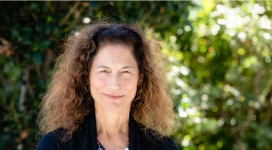Women held the key to life, while men were spending billions on weapons of death and destruction, Archbishop Tutu told a Wordfest lecture at the National Arts Festival yesterday.
After the session hundred's of impassioned marchers braved the cold weather in Grahamstown yesterday to take part in symbolic march of reconciliation.
Carrying olive branches as symbols of peace, the procession moved slowly into the St Michael and St George Anglican cathedral.
The march was organised by Wordfest, a mini-festival promoting writing and writers within the main National Arts Festival.
Wordfest organiser Chris Mann said: "This march symbolises the public testament of the belief that we can heal." In the lecture before the march, titled "No future without forgiveness", authors Pumla Gobodo-Makizela, Antjie Krog, and Zubeida Jaffer also spoke about their work and their perceptions.
In his lecture, Tutu praised the strength of women, their ability to give life and their resilience.
He said: "The world is bleeding, the world is dying and men can spend billions on weapons of death and destruction. Women, you are our last hope." Pumla Gobodo-Madikizela, a psychology professor, said: "Reconciliation is a journey that's about dialogue, dialogue, dialogue. To begin conversations is to begin a journey." She said reconciliation allowed South Africa to go beyond healing and to proceed towards the road to shared humanity.
Author and journalist Zubeida Jaffer said: "Reconciliation is a very personal thing,. It cannot be imposed because it happens at different periods throughout people's lives. In order to reconcile we need to break the cycle of retribution and come to terms with what has happened; but a person can only accept what has happened and move forward in their own time."
Jaffer said victims of past injustices were entitled to feel angry, but this anger should not blind them to the possibility of reconciliation. She also said that the healing process could not be forced on people but had to be personally motivated.
Antjie Krog's read from her poem: "We want to say forgive us, forgive us, forgive us, you who we have wronged." In the cathedral, Tutu told the congregation: "South Africa has paid a high price for freedom and it is a freedom we must cherish."
-

Pastor John Piper Offers Insight and Encouragement for First-Time Bible Readers in 2025
As the new year begins, many Christians have resolved to take on the project of reading the Bible cover to cover. That's great and all, but if it's your first time, just where do you start?
-
[Exclusive Interview] A revelation within the brink of life and death — Meg Leung’s mission in Christian art
Meg Leung (梁麗橋), an artist with a lifelong love for watercolor painting, sees her art as more than a means of expressing her inner world; it is a bridge connecting her to God. Her artistic journey has revealed God’s perfect plan and inspired her to communicate the power of faith through her wor
-
Former President Jimmy Carter Honored with State Funeral, Grandchildren Reflect on Sunday School Legacy
Former U.S. President Jimmy Carter, remembered not only for his leadership but also for his lifelong dedication to teaching Sunday school, was laid to rest on January 9 in a solemn state funeral filled with scripture and heartfelt tributes.
-
Korean cult leader who raped victims ‘in the name of God’ sentenced to 17 years in prison
Jung Myung-seok (정명석), leader of the Korean religious cult Jesus Morning Star (JMS), also known as Christian Gospel Mission (CGM), has been sentenced to 17 years in prison by South Korea’s Supreme Court.
-
5 times fire was used in the Bible as judgment: Reflecting on the LA wildfires
The recent wildfire in Los Angeles has prompted Pastor David Zhai (翟大衞) to reflect deeply on five significant instances of fire in the Bible. Pastor Zhai, a frequent speaker and preacher at churches in the Vancouver area, often interprets current events and news from a biblical and faith-based perspective.




![Saving Gen Z’s Faith: Steve Richardson’s Bold Call to a New Generation of Missionaries [Exclusive Interview]](https://www.gospelherald.com/media/cache/thumbnail/7/21/72196sp_273w_150h_1x_1y.jpg)

